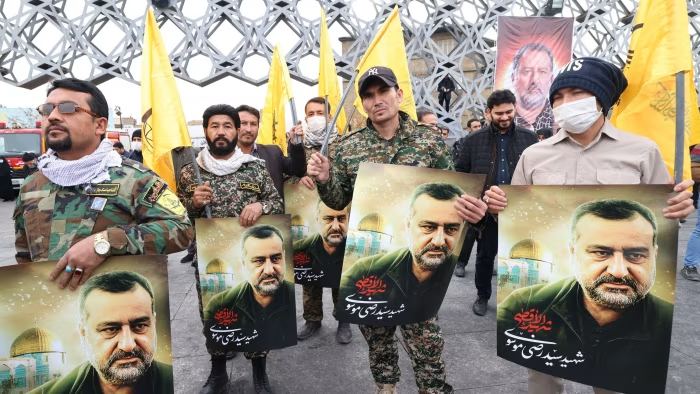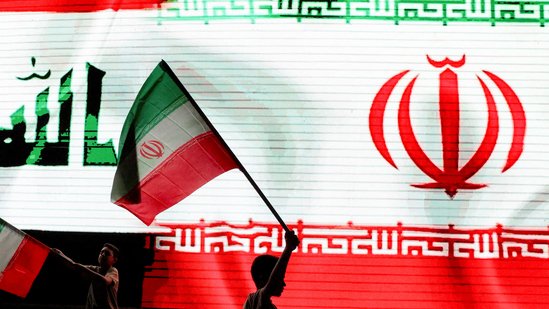
In a significant development that reflects rising Middle East tensions, Iran has executed three Iranian nationals after convicting them of spying for Israel’s intelligence agency Mossad. According to Iranian state media, the executions were carried out after a detailed investigation and trial process. These men were allegedly involved in leaking sensitive military and nuclear information to Israeli intelligence, an act Iran considers a direct threat to its national sovereignty and internal stability. This move has drawn widespread global attention and further escalated the ongoing covert war between Iran and Israel.
Espionage Allegations and Security Charges
The Iranian judiciary stated that the three accused were arrested in 2022 following a multi-agency investigation by Iran’s intelligence services. They were charged with espionage, collaboration with a hostile foreign government, and compromising national security. The authorities claimed that the men had been in continuous contact with Mossad agents and were paid to gather and transmit information related to Iran’s military bases, nuclear research facilities, and defense strategies. According to Iranian intelligence, the group received instructions via secure digital channels and was funded through cryptocurrency and untraceable foreign bank accounts.
These serious accusations led to a closed-door trial in Iran’s Revolutionary Court, which typically handles cases involving national security and espionage. State media emphasized that the court was presented with “undeniable evidence” including electronic communications, transaction records, and witness testimonies that tied the accused directly to the Israeli spy agency. The Iranian government insisted that the trial was conducted fairly and in accordance with the country’s laws, though international watchdogs have raised doubts about the judicial transparency.
Execution Details and Identities Withheld
While Iranian authorities confirmed the execution, they did not publicly disclose the full identities of the three men. All were reportedly Iranian citizens, possibly with access to classified government or military information. Local reports suggest that one of them worked in a technical capacity at a defense facility, while the other two had links to logistics and communications infrastructure. The execution was reportedly carried out in a high-security prison in Tehran. Authorities claimed the men were offered asylum, money, and relocation benefits in return for their services to Mossad. The men had allegedly passed on strategic maps, internal security layouts, and project timelines linked to Iran’s controversial nuclear programs.
Iran’s Official Statement and Warning to Enemies
Following the execution, Iran’s Ministry of Intelligence issued a strong statement declaring that the Islamic Republic will respond firmly to any foreign interference. The ministry emphasized that Mossad and other hostile agencies have been actively trying to infiltrate Iranian systems to sabotage national interests. In the official message broadcast on Iranian state television, authorities warned, “This act of betrayal will be punished with utmost seriousness. The Iranian nation’s security is non-negotiable.“
Government spokespersons claimed that Israel has a history of conducting secret operations inside Iran, and blamed Mossad for past incidents including the assassination of nuclear scientist Mohsen Fakhrizadeh and multiple cyber-attacks on Iranian infrastructure. The execution of these three individuals, according to Iranian officials, was meant to send a clear and powerful signal that Iran will not tolerate espionage or treachery under any circumstances.
Silence from Israel and Intelligence Community
As expected, Israel has not issued any official comment on the execution. The Israeli government typically refrains from acknowledging Mossad’s operations publicly, maintaining a stance of strategic ambiguity. However, international analysts and intelligence experts believe this execution may be part of a larger pattern involving the secret war between Israel and Iran, especially around Iran’s nuclear ambitions. While Iran claims its nuclear program is peaceful, Israel has consistently viewed it as a threat to its existence, and Mossad has been linked to several covert operations that allegedly aim to halt Iran’s nuclear progress.
International Reaction and Human Rights Concerns
The execution has triggered global concern, particularly among human rights organizations and international observers. Amnesty International criticized the Iranian judiciary for conducting trials that lack transparency and due process. The organization expressed concern that the accused may have been denied legal representation, and there are fears that the confessions might have been obtained under duress or torture, a concern that has been repeatedly raised in previous cases of national security arrests in Iran.
The United Nations Human Rights Office has also raised alarm over Iran’s increasing use of the death penalty, especially in cases involving espionage, political dissent, and ideological opposition. Several European diplomats have called for an independent inquiry into the case and have urged Iran to abolish capital punishment for non-violent offenses. While no country officially supported the execution, there remains a geopolitical silence surrounding intelligence-related disputes between hostile states, especially when the conflict involves Mossad and Iran’s intelligence services.
History of Similar Accusations Against Mossad
This case is not the first time Iran has accused Mossad of attempting to infiltrate its security systems. In the past few years, Iran has reported multiple arrests of alleged Israeli spies. In 2021, Iran claimed it dismantled a large Mossad network that had planned to sabotage defense equipment. In 2022, Iranian intelligence said it foiled a Mossad operation targeting the Natanz nuclear facility, one of the country’s most sensitive locations. Early in 2023, Iranian authorities hanged four men who were allegedly working for Mossad to gather intelligence on drone production units in the country.
Iranian officials maintain that Mossad’s primary goal is to undermine Iran’s strategic autonomy and cripple its scientific and military progress. They also allege that Mossad has local collaborators inside the country, and surveillance programs have intensified in recent years to root out foreign agents.
Domestic Reactions Within Iran
Public reactions within Iran have been mixed. Pro-government news outlets celebrated the execution, claiming it was a necessary step to protect national security and sovereignty. On the other hand, civil society activists and some social media users expressed skepticism about the fairness of the legal process. In Iran, trials related to espionage and national security often occur behind closed doors, and journalistic access is heavily restricted. Critics argue that these trials often lack credible defense opportunities, and the accused may be forced into confessions without legal safeguards.
In Tehran and other cities, state-run media aired programs praising the intelligence services, portraying the executed men as “traitors.” These programs were followed by broadcasts promoting patriotism and national resilience against foreign plots. However, underground reformist circles and independent journalists have demanded greater judicial transparency and international monitoring, especially in politically charged cases.
The Broader Iran-Israel Conflict
The execution adds more fuel to the long-standing hostility between Iran and Israel, two nations that have had no formal diplomatic relations since the 1979 Islamic Revolution. Over the decades, this animosity has grown into a covert war involving espionage, sabotage, cyber warfare, and proxy conflicts. Israel considers Iran a serious threat, particularly due to its support for militant groups like Hezbollah in Lebanon and various militias in Iraq and Syria. In return, Iran accuses Israel of violating international law, supporting terrorist elements, and conducting illegal operations on Iranian soil.
Experts believe that both countries are deeply invested in counter-intelligence, and the recent executions could escalate hostilities further. In the backdrop of ongoing nuclear talks and regional diplomacy, such incidents are likely to make negotiations between Iran and Western powers even more complicated.
The execution of three individuals accused of spying for Mossad marks a dramatic moment in the Iran-Israel conflict. While Iran defends its decision as a necessary act of national defense, the lack of transparency in the judicial process raises serious concerns. Global human rights organizations are calling for legal reforms and international oversight to ensure that executions, especially in politically sensitive cases, do not occur without a fair trial.
As Iran continues to tighten its grip on internal security and strengthen its counter-intelligence framework, the danger of more such incidents remains high. The covert battle between Iran and Mossad shows no sign of slowing down, and the world must brace for further developments in this high-stakes geopolitical rivalry.































